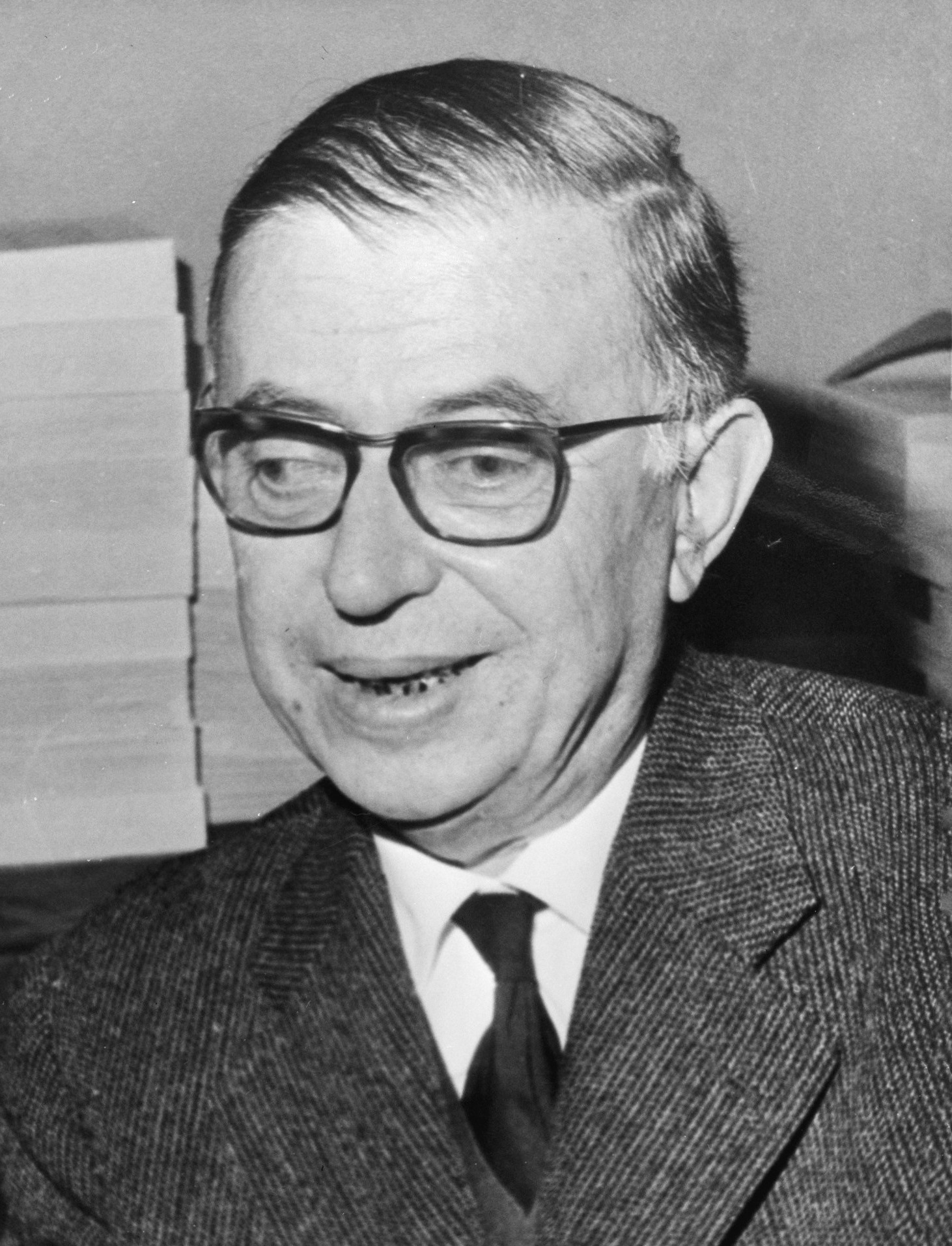Jean-Paul Sartre
 Jean-Paul Charles Aymard Sartre (, ; ; 21 June 1905 – 15 April 1980) was a French philosopher, playwright, novelist, screenwriter, political activist, biographer, and literary critic, considered a leading figure in 20th-century French philosophy and Marxism. Sartre was one of the key figures in the philosophy of existentialism (and phenomenology). His work has influenced sociology, critical theory, post-colonial theory, and literary studies. He was awarded the 1964 Nobel Prize in Literature despite attempting to refuse it, saying that he always declined official honors and that "a writer should not allow himself to be turned into an institution."
Jean-Paul Charles Aymard Sartre (, ; ; 21 June 1905 – 15 April 1980) was a French philosopher, playwright, novelist, screenwriter, political activist, biographer, and literary critic, considered a leading figure in 20th-century French philosophy and Marxism. Sartre was one of the key figures in the philosophy of existentialism (and phenomenology). His work has influenced sociology, critical theory, post-colonial theory, and literary studies. He was awarded the 1964 Nobel Prize in Literature despite attempting to refuse it, saying that he always declined official honors and that "a writer should not allow himself to be turned into an institution."Sartre held an open relationship with prominent feminist and fellow existentialist philosopher Simone de Beauvoir. Together, Sartre and de Beauvoir challenged the cultural and social assumptions and expectations of their upbringings, which they considered bourgeois, in both lifestyles and thought. The conflict between oppressive, spiritually destructive conformity (''mauvaise foi'', literally, 'bad faith') and an "authentic" way of "being" became the dominant theme of Sartre's early work, a theme embodied in his principal philosophical work ''Being and Nothingness'' (''L'Être et le Néant'', 1943). Sartre's introduction to his philosophy is his work ''Existentialism Is a Humanism'' (''L'existentialisme est un humanisme'', 1946), originally presented as a lecture. Provided by Wikipedia
-
1
-
2
-
3
-
4
-
5
-
6
-
7
-
8
-
9
-
10
Streaming video - 2022
Saved in:
Search tools:
Get RSS feed
–
Email this search
Related Subjects
Authors
Existentialism
Prisoners
Autonomy (Psychology)
Consciousness
Criminals
Cuba
Current affairs
Diary fiction
Documentary films
Existential psychology
Foreign study
Gay men
Gay people
History
History, Modern
Homosexuality
Imprisonment
Knowledge, Theory of
LGBTQ+ people
Latin America
Latin America--Politics and government
Lesbians
Monosexuality
Nineteen thirties
Outlaws
Phenomenology
Philosophical literature
Philosophy
Political science
